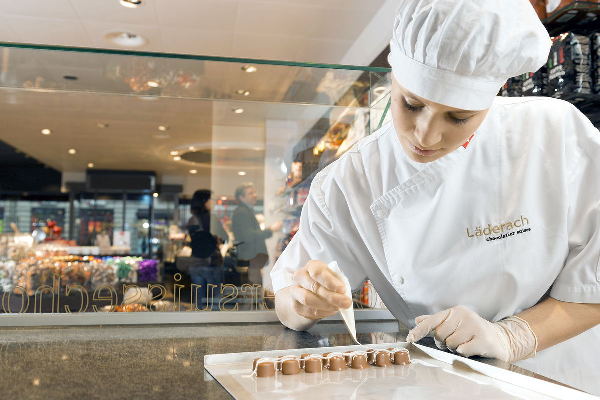Small land, big taste
 |
|
Pastry chefs have made an art of Swiss chocolate for about two centuries.[Photo provided to China Daily] |
The Tete de Moine-reputedly so named because the method of serving suggested the way a tonsure is shaved on a monk's head-is just one of the culinary delights presented to our touring group by our hosts at Zurich's Swissotel. All around us, at a pre-dinner buffet, there is a bounty of local produce.
Besides the array of cheeses and chocolates we expect, there are thin slices of sweet air-dried beef as well as sausages, veal in cream sauce, rare salamis and rye bread served with our choice of butter or moutarde de Benichon, a thick mustard made with sugar, flour, spices and cooked wine must-the freshly pressed juice that contains the skins, seeds and stems of the grapes that is sometimes dubbed "young wine".
In a world that has become so globalized, Swiss wines are a refreshing surprise. The nation exports less than 5 percent of its wines, our hosts say, so these vintages can rarely be enjoyed without being in the neighborhood of the harvest. Most of the production comes from the south, in the French-speaking districts around Lake Geneva.
We are particularly impressed by a crisp white wine from the picturesque terraced vineyards of Lavaux, a UNESCO World Heritage site between Lausanne and Montreaux. ("This is a wine you may sometimes be able to find at the Swissotel in Beijing," the food-and-beverage manager confides.)
Duly noted-that will leave room in the suitcase for other goodies. That, of course, means lots of chocolate for our friends back home, as well as the careful preparations of cherry, apricot and other fruits that the Swiss use for brilliant desserts.
















